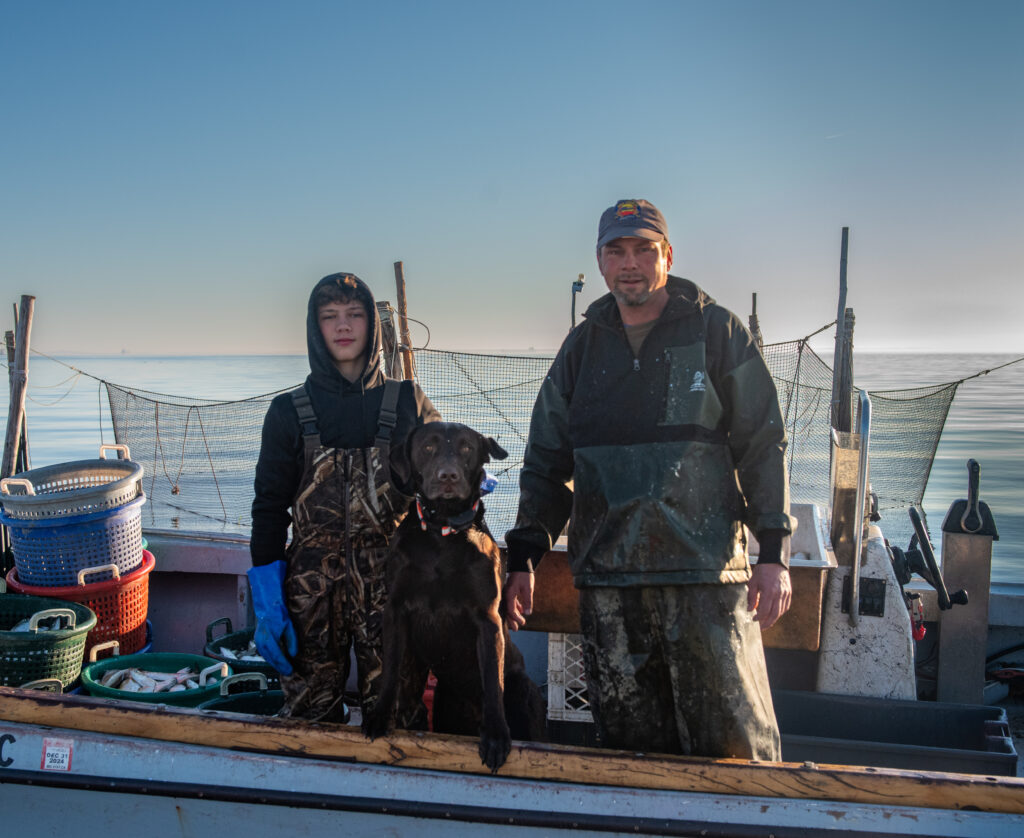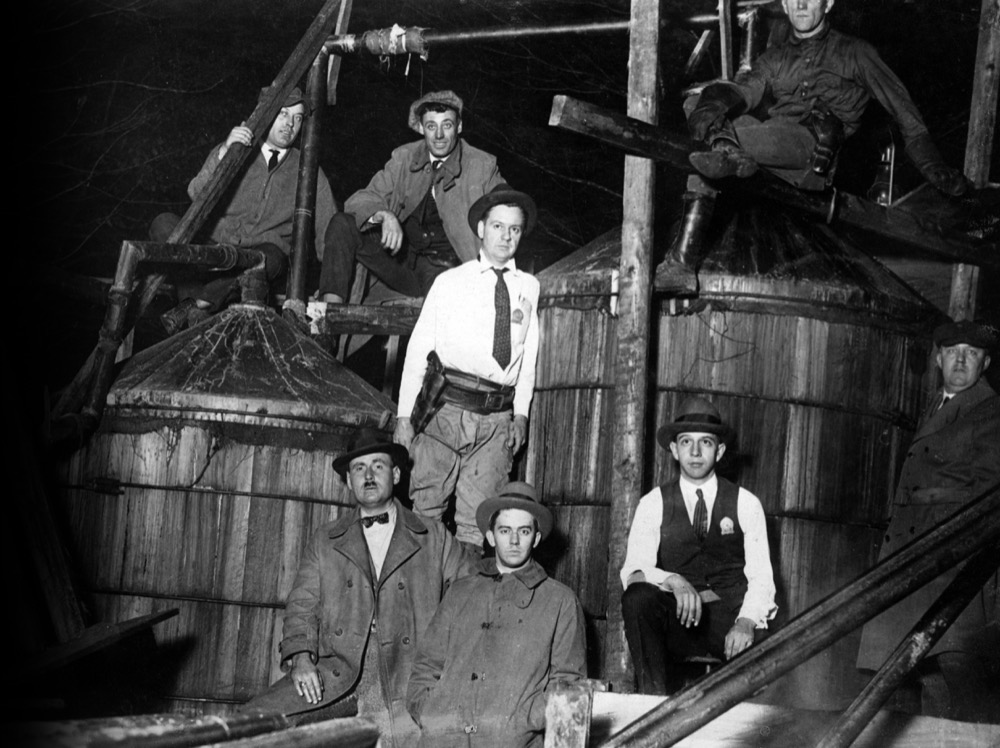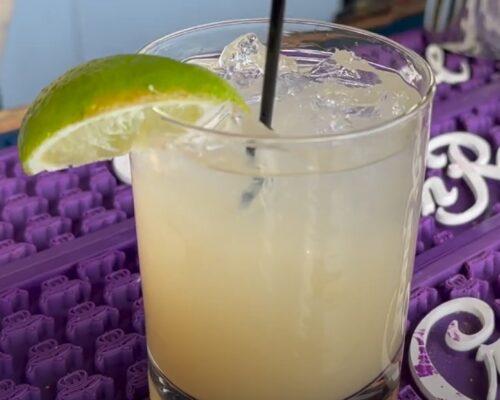Editor’s Note: In this edition of Faces of the Bay, we revisit a multi-generational family business we introduced readers to a few years back as “The Last Watermen of Annapolis”. Bay photographer James Ronayne captures Wild Country Seafood‘s Mahoney family, as its youngest generation steps up to work the water.
Pat Mahoney, owner and operator of Wild Country Seafood, has worked the water for as long as he can remember. He grew up at the end of Third street in the Eastport neighborhood of Annapolis, when it was mostly populated by older, smaller houses and had a rustic “working man’s charm.” Wild Country Seafood, tucked behind the Annapolis Maritime Museum, is keeping that rustic feel alive.
In the Summer of 2009, Mahoney had a vision. He wanted to create a local seafood market that would build a sense of community, serve as a reminder of the origins of Eastport, and allow his family to make a profit rather than sell his catch through a wholesale buyer. Today, Wild Country offers fresh-caught seafood and has a scattering of picnic tables where people can gather to eat freshly prepared menu items. It is a family business run by Pat Mahoney, his children, and his nephew, David White.
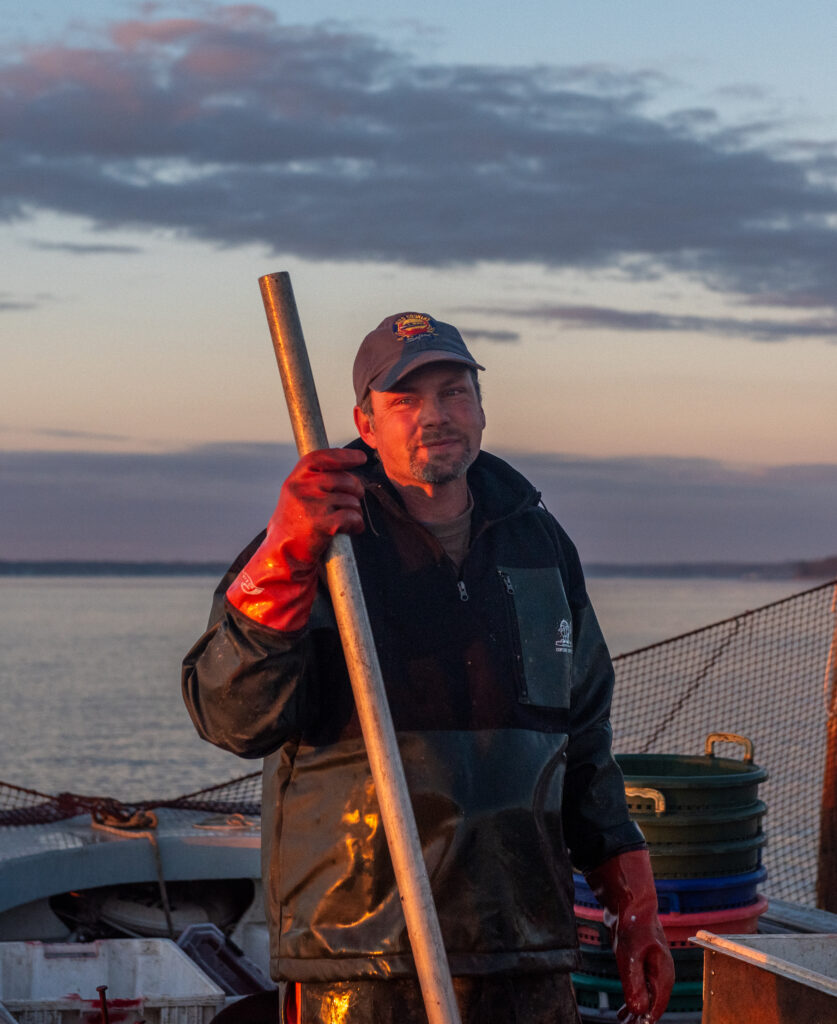
Mahoney is deeply invested in sustainability and fresh, local seafood. The seafood he sells at Wild Country has been caught by Mahoney on a Wild Country boat, while mussels, scallops, and shrimp that are not Chesapeake natives are bought from other watermen on the East Coast. “I make sure the seafood I sell in my store is caught by watermen in the United States. It’s important to me to support the domestic guys.”
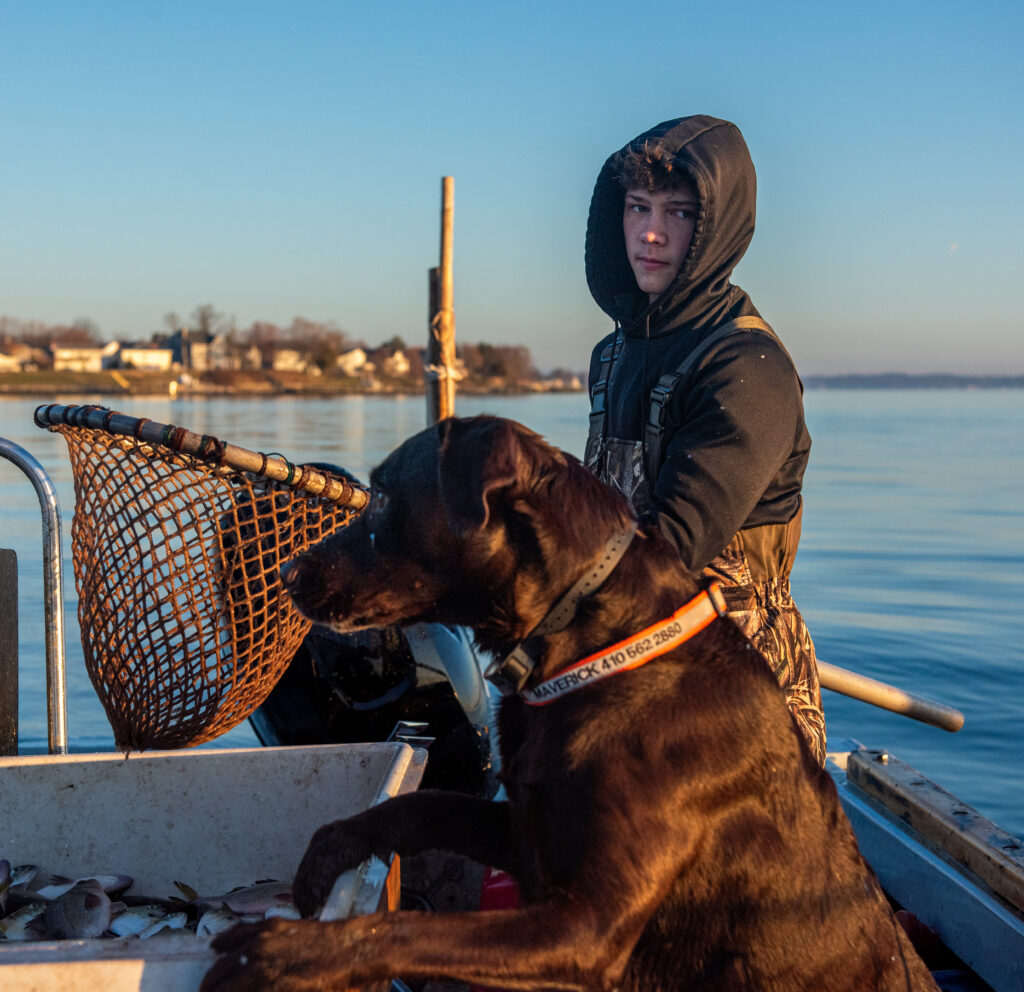
Family is important to Mahoney, and one of Wild Country’s most charming features is that it is family owned and operated. Mahoney and White are the men behind the business, working together to harvest the seafood and sell it in the store. Mahoney’s children play a large part in the business as well. Sons Patrick III (16) and Hunter (14) work the boats with their father. Mahoney’s daughter, Riley (13), runs the counter in the shop. All of his kids are deeply immersed in the Chesapeake lifestyle and can shuck an oyster faster than most watermen. Even his dog, Maverick, helps on the boat acting as protector and quality assurance manager.
Mahoney started his career when he was 10 years old working on a 20-foot skiff that his uncle built. Now his fleet includes the Wild Country, a 1980s Hughes bayboat that he uses for crabbing, the Grey Ghost, a smaller fiberglass skiff used for oystering and pound netting, and Baby Boy, a 1970s Deltaville Deadrise. “Each boat serves a purpose and gets the job done,” Mahoney says. Baby Boy was his father’s boat, and when he passed, Mahoney mixed his ashes into the epoxy of the boat. “This way I’ll always be with him on the water,” he says.
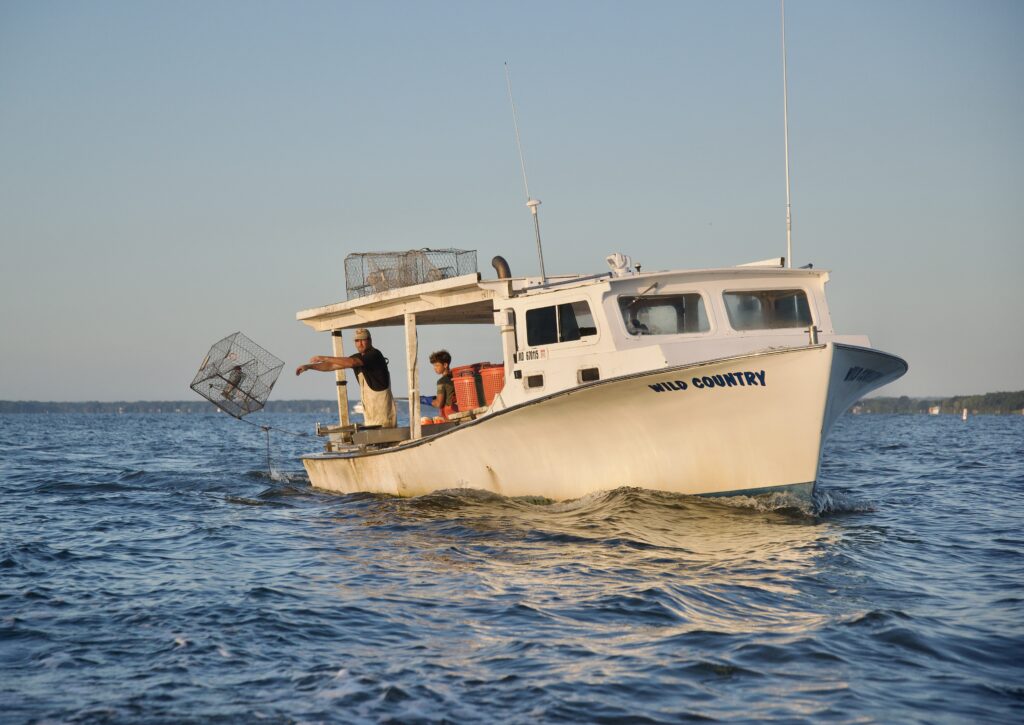
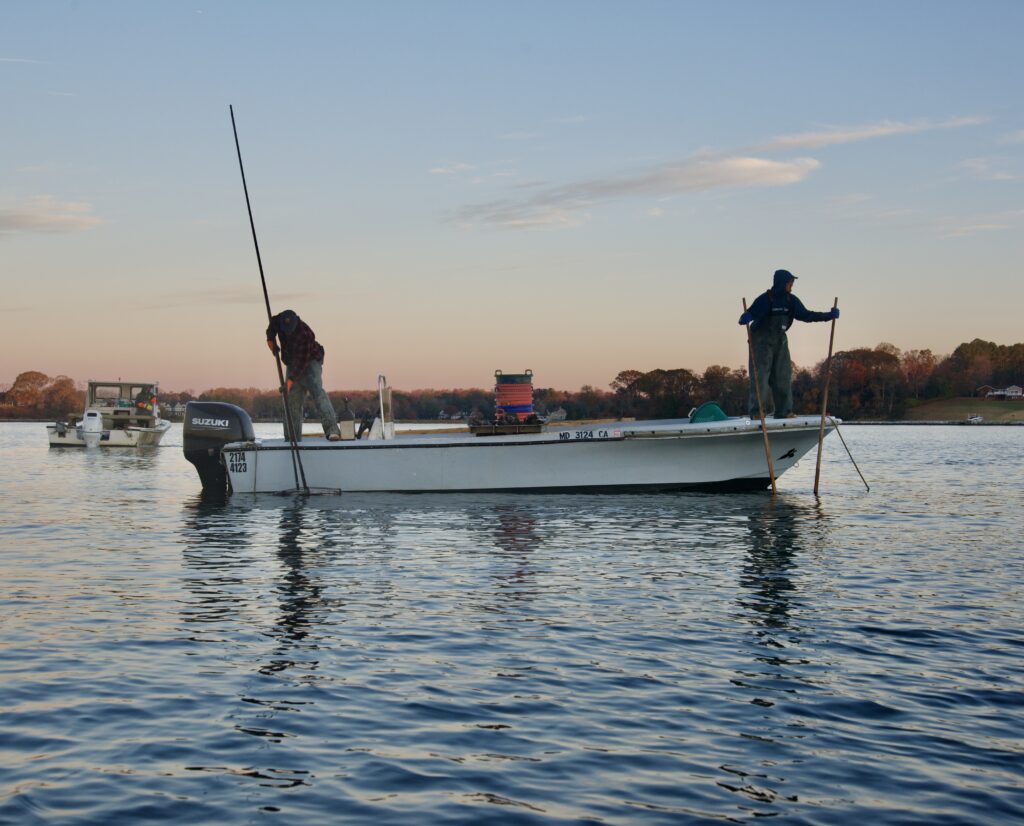
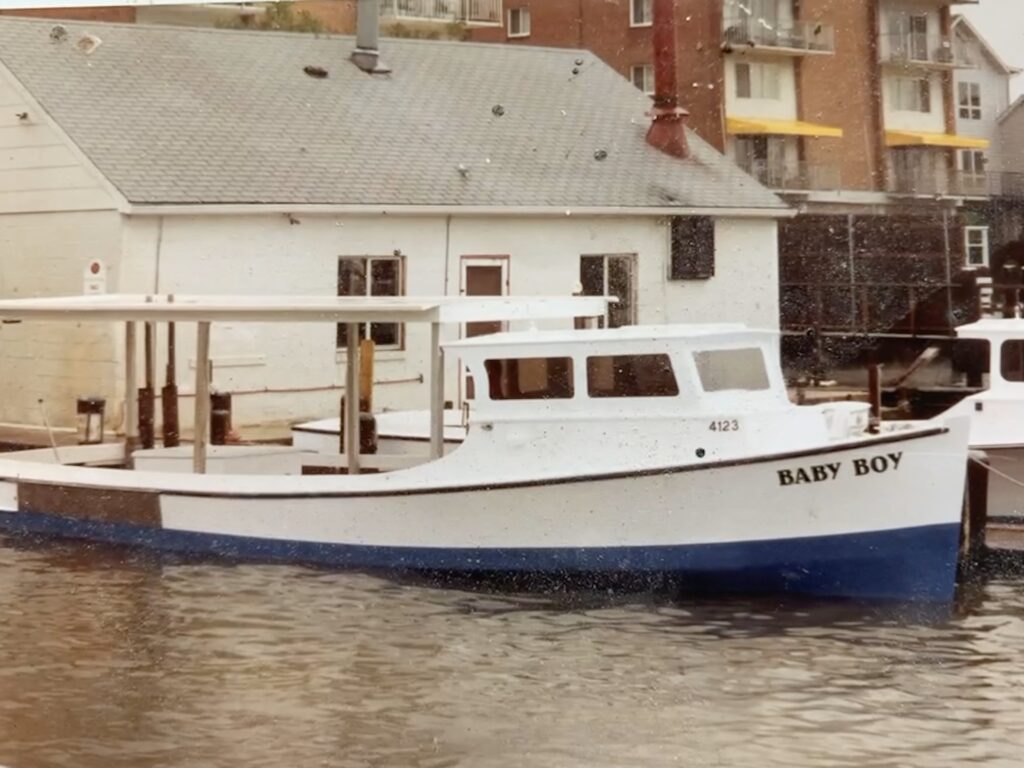
Aside from the seafood caught outside of the Bay, Wild Country is mostly self-sufficient. “We catch our own seafood, on our own boats, that we fix and service ourselves, and we employ members of our family,” he says. Each season builds upon the next, as Mahoney catches his crab bait in his pound nets over the winter and freezes the bait until the summer crabbing season. The lettuce and tomatoes served on the Market’s fresh sandwiches are all grown on his family’s property. Christmas day is the only day they take off. “It doesn’t matter if it’s snowing, raining, or storming, there is always work to be done. Whether it’s fixing gear, boats, or catching the seafood, we stay busy. You’ll notice our market hours are a little unusual because we are out catching the stuff we sell. It doesn’t get any fresher than that.”
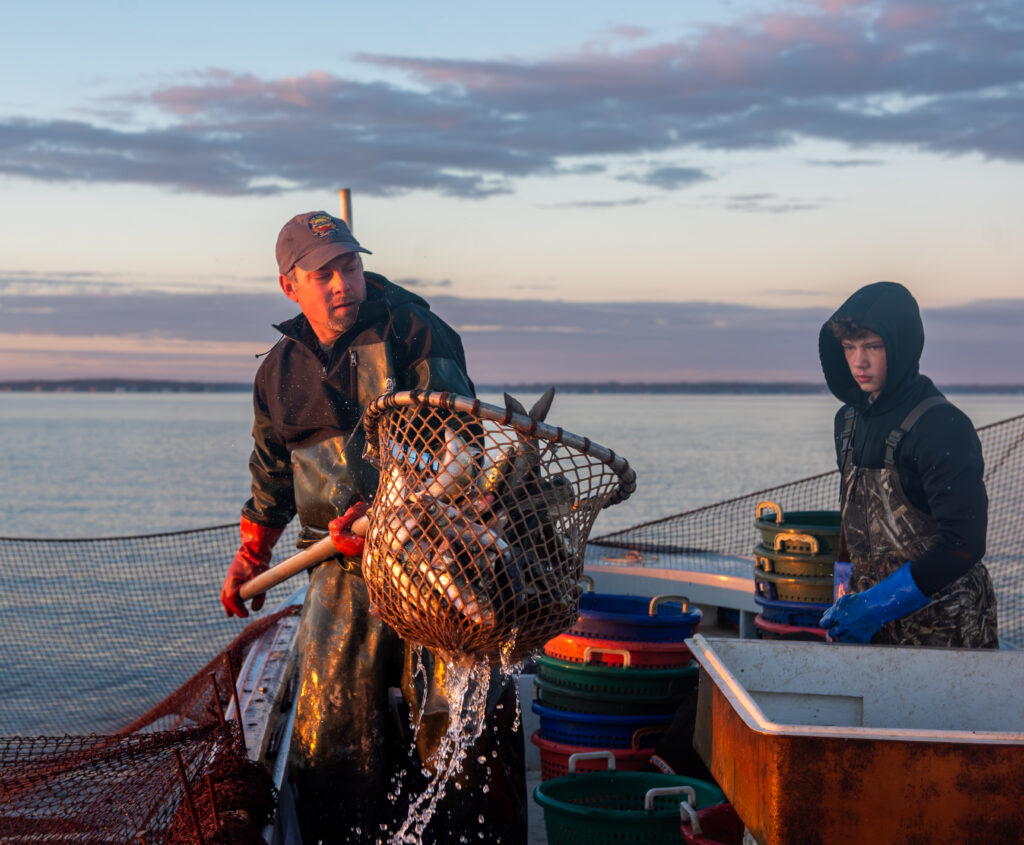
Mahoney lives near the Rhode River and has an oyster aquaculture bed not far from his dock. Aquaculturists are allowed to harvest and sell oysters all year long, even when the wild-caught fishery is closed. Mahoney says, “Aquaculture makes sense because it allows me to cultivate a high-quality product that’s harvestable year-round and also supports the sustainability of both local seafood and my own business.”
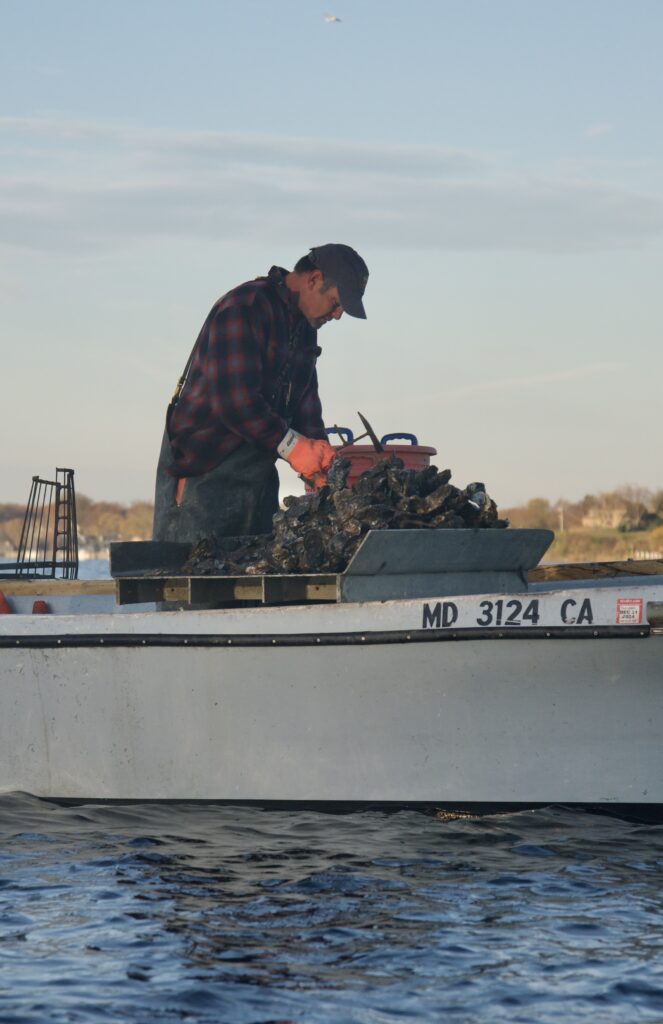
Aquaculture has become more common over the past few years. Patties Fatties, the Wild Country Aquaculture brand, was one of the first to appear on menus around the Bay. Mahoney says, “I realized that Aquaculture was the profitable way to get oysters years ago, so I bought a lease, educated myself on the process, learned how to grow a good oyster, and Patties Fatties was born.”
But the aquaculture business is not immune to struggles. It relies on recycled oyster shells to grow new oysters, and Mahoney says there is a shell shortage. Traditionally, watermen replenish used oyster shells back onto oyster reefs. This allowed oysters to grow on a new surface, and the watermen could harvest oysters on the same shell multiple times. Today, a majority of recycled shells are being placed on protected sanctuaries. There are fewer shells being harvested and brought back to the aquaculture market. “Twenty years ago, I could get a bushel of shells for 75 cents,” he says. “Now that same bushel costs me $10. Each year I’m planting 1000 to 1500 bushels of shell. What was once a guaranteed return on investment, is now harder to earn back”.
Mahoney is mindful of protecting a healthy Chesapeake Bay. Oysters do the hard work of cleaning and filtering the Bay and he works hard to ensure that the reef he owns is healthy. “It’s my lease, I own it, I want it to thrive.” He says, “I’m invested in the future health of the Bay, and I want my kids to be able to have the same opportunities that I do. They won’t if the Bay is in shambles.”
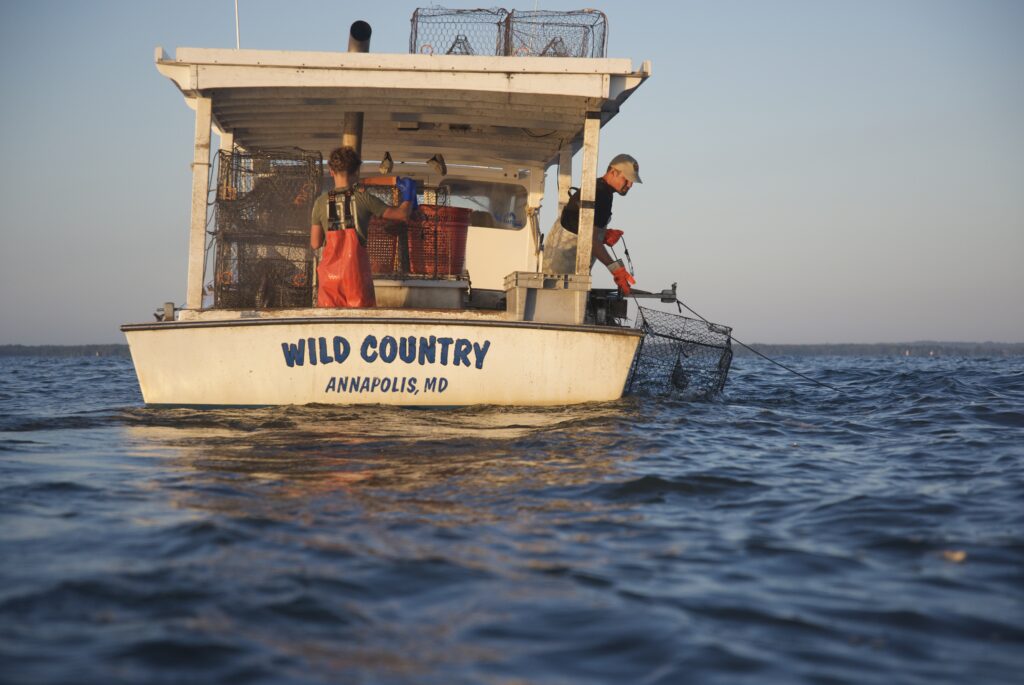
Pat Mahoney and Wild Country Seafood are an inspiring example of hard work and dedication to small business values, community, and a sustainable future for the Chesapeake Bay. Visit Wild Country Seafood in Eastport and discover a piece of Chesapeake heritage for lunch.

